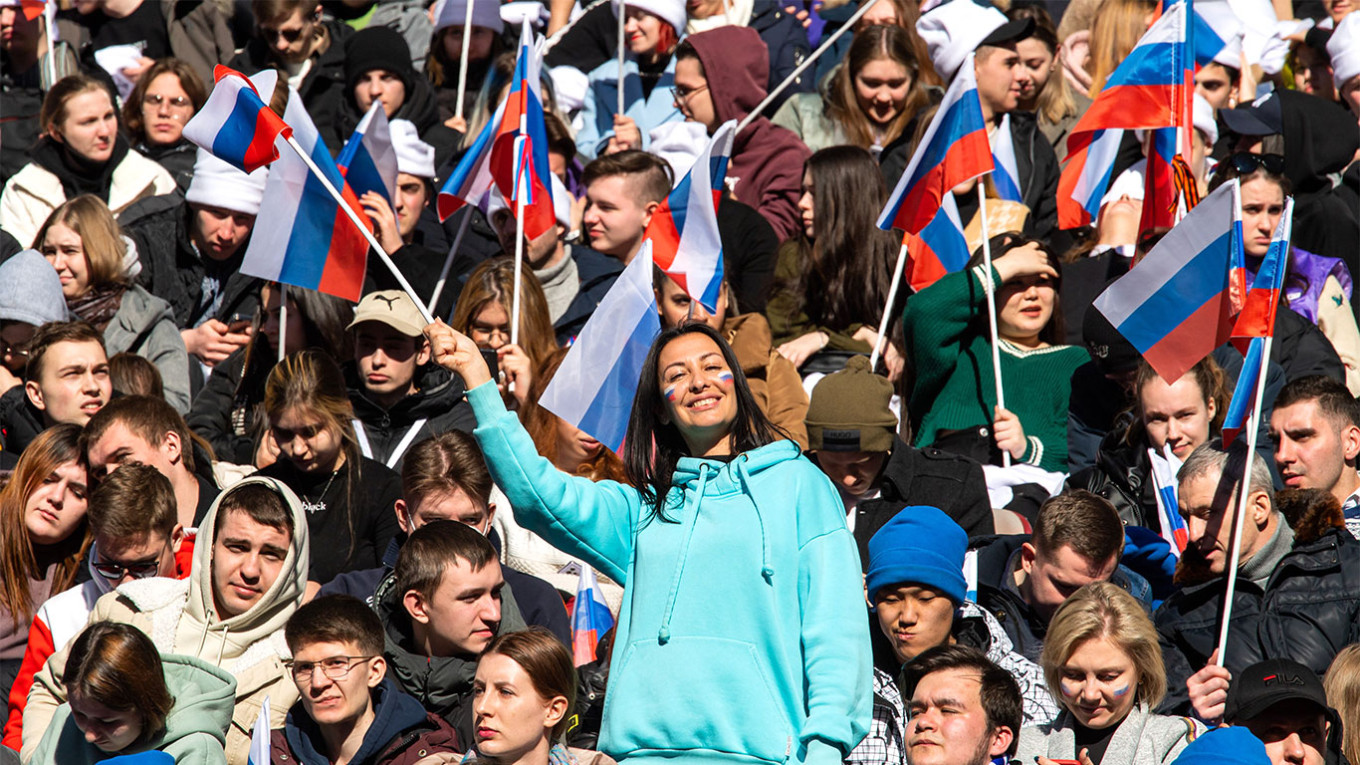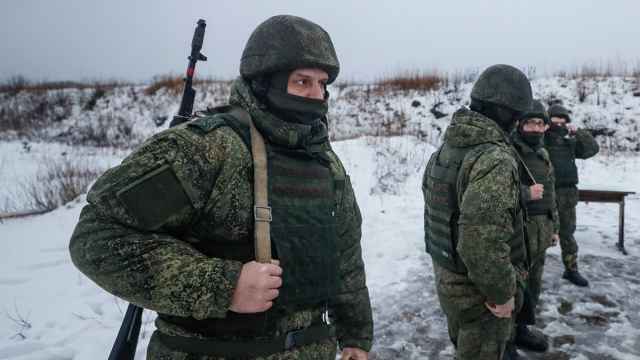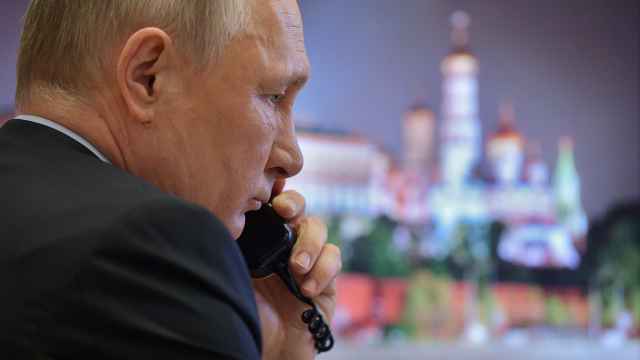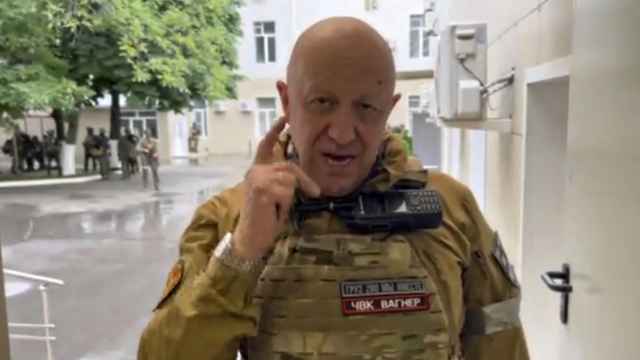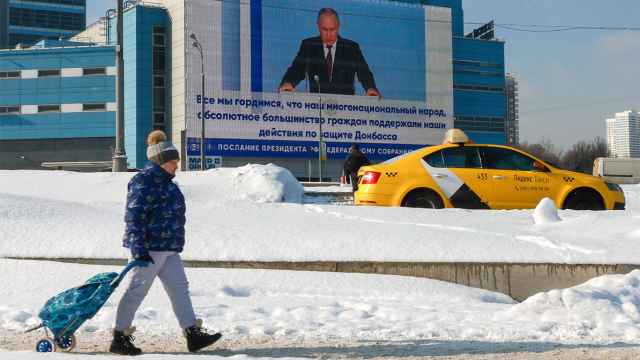Is it possible to predict the political future of the next generation of Russians, whom the Kremlin is counting on to adopt its ultranationalist beliefs and march into positions of power that will cement the hold of Putinist politics for years to come? A major new survey suggests that, despite the turmoil and disasters of two years of the war against Ukraine, Moscow’s youth policies may prove to be more effective than many Western onlookers hope.
The Western media reports regularly on isolated bright spots among the gloom. Despite the state’s military recruitment drives, enlistment offices are more likely to be bombarded with firebombs than young volunteers. Hundreds of thousands of millennials have fled the country rather than participating directly in their country’s war.
Meanwhile, challenges to President Vladimir Putin’s authority seem more likely to come from young Russians than their parents. Occasional and eye-catching public protests have seen youths covering themselves in blood, holding anti-war signs in public places, and plastering Moscow with anti-war QR codes.
In recent weeks, large numbers of young Russians braved the wrath of the security services to mourn Alexey Navalny in public. Footage of others spoiling ballot boxes as an act of protest against the fake presidential election hinted at the ongoing willingness to show dissent.
Yet, according to the Russian state’s luminous vision of political participation, an entirely different reality exists. Both the Kremlin and young people are more positive about state politics than ever before.
The survey, which polled over a thousand Russians aged 18-35, is the biggest and most important of its kind released since Russia’s full-scale invasion of Ukraine. With some caveats, the report indicates that young Russians are more receptive to the state’s increasingly violent and authoritarian messaging than might be assumed from the lavish Western press coverage afforded to youth protests.
Paramilitary and state-run youth groups have seen a boom in membership numbers. The Youth Army (Yunarmiya) paramilitary group, which teaches patriotic values and military skills designed to prepare children for military service, can barely keep up with demand as its numbers have — according to the latest and now outdated estimate— swelled to almost one and a half million.
The new Movement of the First (Dvizheniye pervykh) group, launched in December 2022 as a more palatable, de-militarized counterpart to the Youth Army, purportedly already counts millions of members among its ranks. The figures might be exaggerated, but they reflect a stark reality: many young Russians are, by choice or by force, learning the ideals of Putinism both inside and outside of school.
Indeed, Putin hails what his propagandists present as the spontaneous enthusiasm of young Russians for his regime. During his pre-election activities, he even visited the World Youth Festival, hosted by the state near Krasnodar, to speak to the thousands of conference delegates.
Upon declaring victory, Putin made a speech from a podium surrounded not by the middle-aged and elderly functionaries and servicemen who in reality dominate both politics and society but by young Russians. As he hailed the soldiers of Russia’s past who had thought of “future generations” by waging war, his young audience nodded along. “Russia, Putin, Forever” declared their T-shirts. The young, symbolically, have embraced Putinism for good.
Which version of the narrative is closest to the truth: the Western press’ projection of a miserable and oppressed generation desperate to break free of Putinist oppression? Or the Kremlin’s glittering vision of a buoyant youth embracing a militarized and statist future? Or do these two opposing realities co-exist, balancing each other out?
The Chicago Council on Global Affairs’ new survey makes for bleak reading for those who hope the image of youth support for state-sponsored nationalism is a pure propaganda confection.
The headline finding — that 82% of young Russians remain proud to be Russian citizens — might astonish those hoping that the upcoming generation will reject their country’s abominable and illegal behavior both at home and abroad. Meanwhile, a mere 13% of those surveyed stated that their political views were markedly different from their parents’. The widely reported violence and illegality that has characterized their army’s behavior in Ukraine, the nationalistic culture of exclusion and militarism propagated in educational institutions and popular culture, and the increasingly violent approach to suppressing not just protesters but non-Russian minorities and the LGBTQ+ community does not seem to have dented national pride or prompted a mass rethink on Putinism.
Indeed, the survey finds that young Russians are in fact feeling increasingly positive about their future. Just over half of those polled were optimistic when imagining their lives in 10 years. That figure pales in comparison to the equivalent figures among Western youth, but hardly indicates a Russian generation that is on the brink of taking to the barricades to destroy Putinism.
Likewise, the finding that 48% of young Russians prefer democracy as a form of government does not necessarily mean a turn to Western liberalism: after all, in Vladimir Putin’s irreality of fake news and disinformation, Russia is already a paragon of democracy and Russians have recently voiced their near-unanimous support for his leadership once more.
The survey’s findings of widespread political apathy provide the most comfort for those of us who hope that Russia can find a route out of violence and lawlessness. According to the results, few young Russians are voting, participating in public advocacy, signing petitions, or filing complaints with the state authorities. If Putin is hoping that the next generation of Russians will mature into a hyper-mobilized generation of drum-beating patriots ready to do the state’s bidding at the drop of a hat, then he may be in for a shock.
Nonetheless, we might ask whether participation in these traditional activities is what the president really wants. Is he eager to see a generation of eager complainants, advocates, and collaborators? Or would he rather young people join in, automaton-like, with campaigns and activities led by increasingly influential groups like the Youth Army and Movement of the First?
We should not overstate the survey’s findings (although they support the research of other pollsters and academics). More work needs to be done before we can declare that hopes for the next generation are entirely futile.
Nonetheless, substantial numbers — many millions — of young Russians may be heading for the civil service, military, and other privileged positions that will help them perpetuate Putinism long after Putin himself has left the Kremlin. Thus far, Russia’s conduct in Ukraine and its war against the domestic population has done little to change that.
A Message from The Moscow Times:
Dear readers,
We are facing unprecedented challenges. Russia's Prosecutor General's Office has designated The Moscow Times as an "undesirable" organization, criminalizing our work and putting our staff at risk of prosecution. This follows our earlier unjust labeling as a "foreign agent."
These actions are direct attempts to silence independent journalism in Russia. The authorities claim our work "discredits the decisions of the Russian leadership." We see things differently: we strive to provide accurate, unbiased reporting on Russia.
We, the journalists of The Moscow Times, refuse to be silenced. But to continue our work, we need your help.
Your support, no matter how small, makes a world of difference. If you can, please support us monthly starting from just $2. It's quick to set up, and every contribution makes a significant impact.
By supporting The Moscow Times, you're defending open, independent journalism in the face of repression. Thank you for standing with us.
Remind me later.



